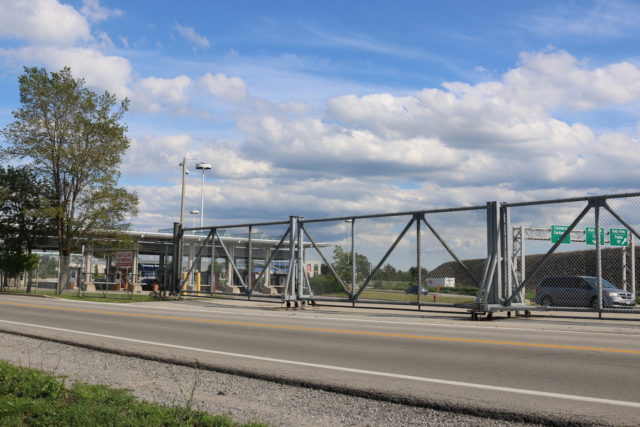Ottawa, Ontario
September 1, 2017
Government of Canada
The Ad Hoc Intergovernmental Task Force on Irregular Migration met today to discuss the situation at Canada’s border. This third meeting focused on coordinating efforts to address the influx of asylum seekers entering Canada at irregular border crossings.
Federal minister and Task Force Chair, Marc Garneau, recalled progress made at the last meeting in Montreal, Quebec, including the commitment to increase data collection and information sharing among Task Force members. He highlighted the spirit of collaboration and partnership between the federal government and the provinces, in particular Quebec and Ontario, as well as with local community partners.
Progress has been made to speed up processing of asylum claimants. Capacity was increased by mobilizing existing resources to help at key locations. The Immigration, Refugees and Citizenship Canada (IRCC) office in Montreal more than tripled its daily processing output. In light of the progress made to date, the NavCan Centre in Cornwall, Ontario, is no longer required for the time being, although it remains on standby.
At today’s meeting, Task Force members recognized that expanded facilities at the Peel Street Joint Processing Centre in downtown Montreal allows IRCC and the Canada Border Services Agency (CBSA) to process even more claimants every day. IRCC will also be opening a temporary processing facility at Complexe Guy Favreau, in Montreal. This will help speed up processing of asylum claims, expedite work permits for all asylum claimants in order to reduce reliance on provincial social assistance and assist the Immigration and Refugee Board of Canada determine whether someone is truly a refugee that requires Canada’s protection.
In addition, Quebec Minister of Immigration, Diversity and Inclusiveness, Kathleen Weil, highlighted that since August 24, 2017, thanks to changes made by federal minister Ahmed Hussen, Interim Federal Health Program (IFHP) certificates are being provided by CBSA and IRCC to individuals who are entering Canada between Ports of Entry (POEs) after they undergo a thorough screening process, including medical, background and security checks in Lacolle, QC, and have their eligibility interview scheduled.
Task Force members also stressed the importance of continuing to update and inform Canadians about the situation at the border and also to engage with different communities to counter false information about Canada’s asylum system.
Member of Parliament, Emmanuel Dubourg, took this opportunity to update the Task Force on his visit to Miami last week. He met with local elected officials, community leaders as well as Haitian, Canadian and U.S.-based media, to dispel the myths on social media channels, such as WhatsApp, which had suggested that Canada gives asylum seekers a free pass into Canada. He also reinforced that while Canada is a welcoming and accepting country, entering Canada must be done according to the rules.
Building on this engagement approach, members of the Task Force agreed to undertake more engagement activities in the United States and with Canadian multilingual communities in the coming weeks. This approach will include targeted outreach into other communities and will be undertaken in close collaboration with Canada’s missions abroad – both in the United States and throughout Central America. Minister Garneau concluded by voicing his strong appreciation for the hard work being carried out by the RCMP, CBSA, IRCC, Canadian Red Cross, and community organizations that have helped to manage the influx.










